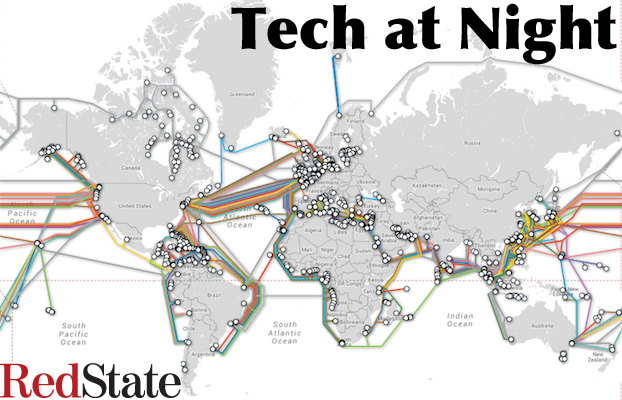
A big bill is in the air. Politicians are starting to talk about passing a new Communications Act. Lobbyists are drooling at the prospect of a new Communications act. Small government activists want a new Communications act, and they give good reasons for it.
I don’t want a new Communications Act. Here’s why.
I don’t mean to pick on Tech Freedom, I link to them often in this space for good reason, but their case for a new Communications Act is also my case against one. They point out the last time we did this, with the Telecommunications Act in 1996, “what came out of the legislative process was a mess… and it’s increasingly breaking down in the real world.”
This is what happens when they pass big bills in DC. Lobbyists for and against every regulation, every picking of winners and losers, and every possible new picking of winners and losers, all converge on the Capitol. They fight it out, and the result ends up a big, unread mess that we have to pass to find out what’s in it. Then 20 years later they tell us we have to do it again.
Amnesty. Obamacare. Transportation. Food stamps. Every time there’s a big bill that we’re told we need to pass, it gets loaded down with all sorts of things that everybody swears got in by mistake, but nobody ever admits that we need to do something to eliminate these processes that allow all the horse trading that goes on.
Is the Communications Act “silo design” (as Tech Freedom calls it) a bad idea, and leaving us at risk for more FCC overreach? Yes. Do we need legislative reform to fix that? Absolutely. But one big bill I think is not the way to go. I favor an incremental approach of smaller, digestible bills that can be scrutinized and criticized by the public, not just by lobbyists and other insiders.
P.S. It’s not like we’re going to get Democrats to sign off on a big bill as liberating as the Telecommunications Act was intended to be. Back then, even John Kerry favored a light regulatory touch.
Anarchist blackshirts want attacks on Internet connectivity to be legal, which is odd since the radicals also tend to tell us that Internet access is a human right, while Distributed Denial of Service attacks deny that same Internet access both to their targets, and to innocent bystanders affected by the network overloads.
Meanhile the Anonymous blackshirts are making more threats. I look forward to when they get rolled up and thrown in prison, too.
Speaking of prison for blackshirts, Australia is going after freeloader culture.
The House suddenly passed an anti-NSA amendment seeking to defund PRISM. I’m disappointed. We can’t defund Obamacare but we can defund NSA? Get real people, get real.
Ask yourself why, if Bitcoin is such a great investment, big bucks would be spent on promoting Bitcoin? Why bring more people in on the investment, instead of just doing it quietly and raking in the bucks? Unless it’s a Ponzi scheme, of course.
The Obama administration wants to punish private companies for suffering attacks that leak private data, but They can’t even keep emails confidential even without an attack.
The easiest people in the world to scam are those who want to make fast money doing no real work. Thus, Mt. Gox scammed Bitcoiners easily.
Netflix is lying when they claim slowness is your ISP’s fault every time.
No the Supreme Court didn’t end software patents, as some thought. They sent down a narrow ruling striking down some specific patents, but not touching software patents or business process patents.